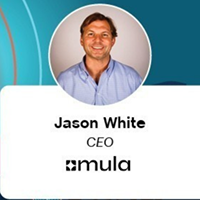There is something fun about watching two titans clash. Think of Godzilla battling King Kong. It’s fun especially, and probably only, assuming the battle doesn’t lead to one’s own demise. Instead of Godzilla and King Kong, the two titans doing battle are none other than Yahoo and Google with their battlefield being web site ads. As CNet states, “Yahoo is poised to launch an ad network for small Web publishers styled on a similar offering from Google.” In other words, the Yahoo Publishing Network, its direct competitor for Google AdSense. This week’s Thoughts focuses on the news surrounding Yahoo’s new product offering and the implication for those in the space.
That Yahoo and Google compete is nothing new, but that Yahoo is taking on Google in a space it dominates is certainly new and noteworthy. For most companies, even powerhouses, the thought of taking on Google in an area it invented doesn’t seem like a plan for success. Were MSN owned by any other company than Microsoft, it would have had to drop out of the search engine race by now. Similarly, given all the success that Ask has had, it still has yet to carve out more than a 5% stake in the pure search space. Luckily 5% of a multibillion dollar space still makes for a great business. However, very few companies would peg search as an area for their own business development at this time. All of which only signifies the magnitude of Yahoo’s decision. In other words, given Google’s dominance in that space, attempting to enter that area does not seem wise. Yahoo though, has a history of making smart decisions, and this one should prove among them.
One main reason that Yahoo stands a good chance in capturing market share is that the user of the product is quite different from the search user. For almost any product users build up a preference and if the product meets their needs they have little incentive to switch, especially when the product is more of a service and not a price dependent commodity. Unlike soda, for example, where people tend to have a preference but will sacrifice their brand in favor of another were there a good deal. Search engines don’t tend to work that way. Publishers, however, are a different story, and anyone who works at an ad network or affiliate program can attest to this. Not only can one monetization service rarely fulfill all an inventory’s needs, but the barrier to testing a new service is so low that affiliates will commonly swap in and out of their sites new programs, especially for banners and similar on-site display ads.
Another reason that Yahoo stands a good chance is that despite Google’s monopolistic position, enough dissention exists among their affiliate ranks that Yahoo stands to gain a large amount of traffic once they open up their doors. For those that aren’t familiar, this type of program offers IAB ad units that display search result listings based on the content of the page. As opposed to traditional 468×60, 728×90, 120×600, etc. ads that display graphical images, ads from Google’s AdSense and Yahoo’s new publishing network display text ads. There incredible adoption across small and top-tier sites has to do not only with the non-intrusive nature of the text but also the relevance. Many niche sites and larger content players prefer to have ads that meet their audience. Companies such as Google and Yahoo’s Search Services that deal with upwards of 100,000 advertisers are in an ideal position to provide advertisements on a wide spectrum of audience interests and more often than not can provide relevant ads for even the most niche content sites.
These niche affiliates that helped make Google’s AdSense for Content so prominent want more. One thing that they want more of is a topic we discussed recently, transparency. While often happy with the targeting of the ads, most affiliates have come to expect a certain level of transparency in knowing what they get paid. Google for instance does not disclose the revenue share to partners. Affiliates could be making as little as 30% or perhaps as much as 60%. Stats, too, are another perceived weakness. Overture, on the other hand, is not known for their stats, so in order to compete they will need to provide granular stats, and make sure they are as close to real-time as possible. Affiliates, especially content owners, want to deal with people – quickly and easily. This is something that companies who began as affiliates understood when building their business and for which now they earn continuous praise. That is why if Yahoo can focus on the people aspect and not just the technology, they can come close, if not beat, Google.
What Yahoo will mostly show when they unveil their product, most likely in early Q2, is that competition is a good thing. The affiliates using Google now will ultimately get a better product, either in the form of Yahoo or in the form of Google meeting their needs better. In the end we all win.
 Network
Network

